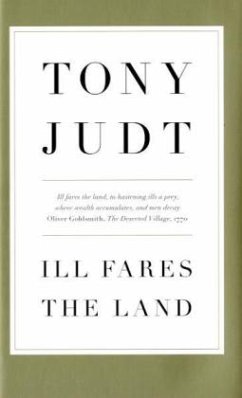Something has gone profoundly amiss in our public affairs over the past thirty years. In the West, we are wealthy and secure enough to allow ourselves to drift very far off course before anything has to be done. But we have forgotten how to think about the life we live together: its goals and purposes. Not only are we post-ideological; we have become post-ethical. When we ask ourselves whether a particular policy objective should be pursued - universal healthcare or investment in public transportation - we know only how to inquire about its efficiency: its profitability or cost, its impact upon growth and the National Product, its implications for taxation. We have lost touch with the old questions that have defined politics since the Greeks: is it good? Is it fair? Is it just? Is it right? Will it help bring about a better society? A better world? The US and UK today are more unequal - in incomes, wealth, health, education, life chances - than at any time since 1914. Is this desirable? Is it prudent? Those used to be the political questions, even if they invited no easy answers. Until we have learned - or re-learned - how to pose them, we shall go on as before. Can we go on 'like this'? Yes. Should we? No. If we are to replace fear with confidence then we need a different story to tell, about state and society alike: a story that carries moral and political conviction. Providing that story is the purpose of this book.
Bitte wählen Sie Ihr Anliegen aus.
Rechnungen
Retourenschein anfordern
Bestellstatus
Storno

